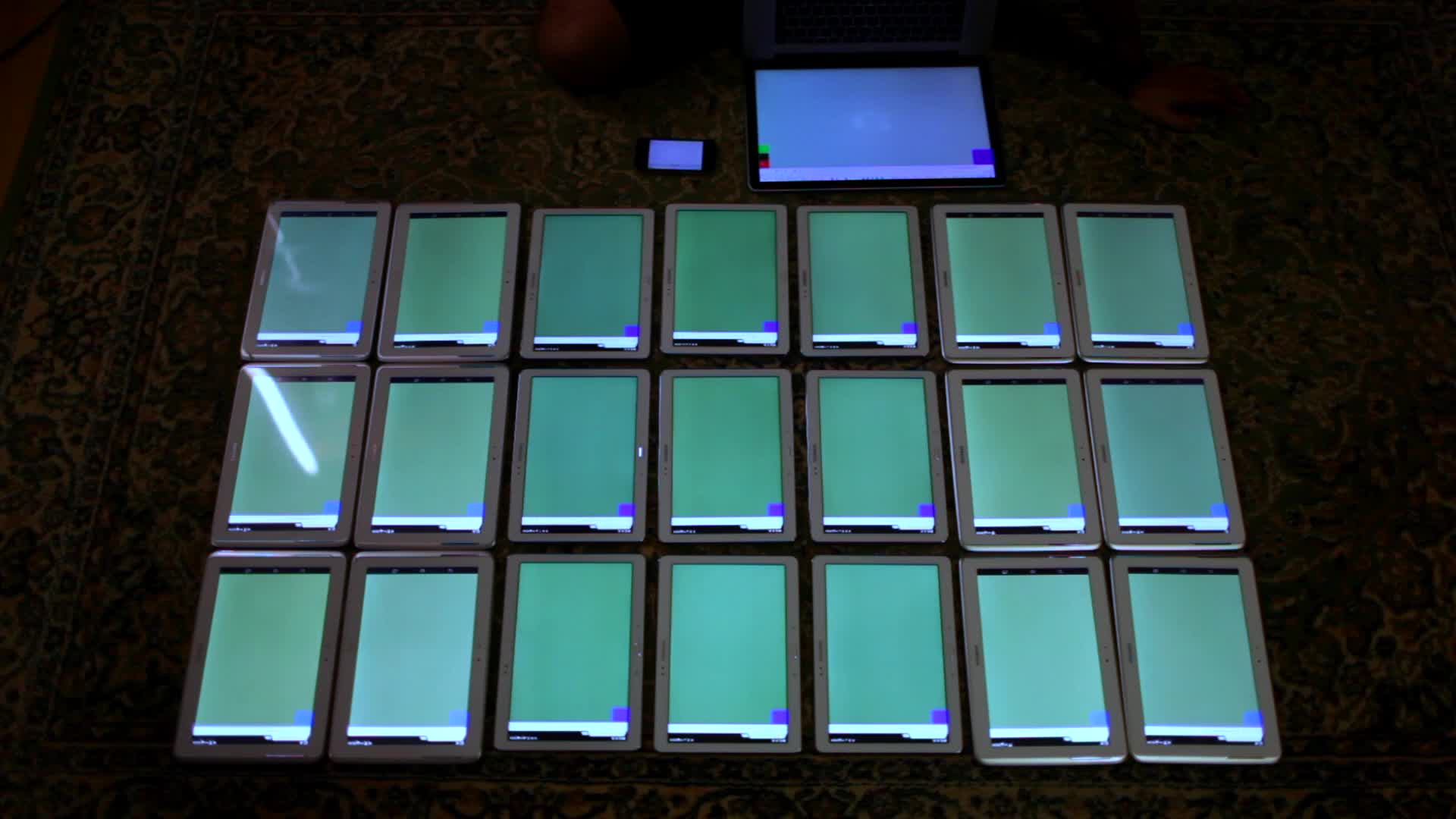
First tests to see if it would be possible to use lots of old and slow Android tablets with mixed pixel densities to create real time, interactive, large scale video wall.
In this test the 6 tablets on the side runs Android 4.4.2 (max you can get), the middle ones run 5.1.1.
Each tablet runs current Chrome Beta.
Can be controlled by any device (multiple simultaneously at any given time) that runs web browser. In this case a laptop, as we ran out of tablets ¯_(ツ)_/¯. Just pushing buttons in a web browser, as well as dragging cursor around the screen as you can see.
The first test is simple socket emitter to CSS, that switches DOM style (background colors).
Second test is canvas in fullscreen mode, that is spilt for each tablet (no offscreen rendering, each tablet has canvas region only as big as tablet screen, or it would choke to death on the first renderframe). It takes into account tablet bezels (mapping pixel coordinate space to physical real world).
Jaggy. Sure there was unoptimized code, lot of console logging, as well as it was run under webpack dev server hotreloads, but yeah, imho 2D context is a no go. Putting this into 3D context might be ok, although these tablets suffer the "too slow GPU for the uber retina screen" and have old Android OSes..


















